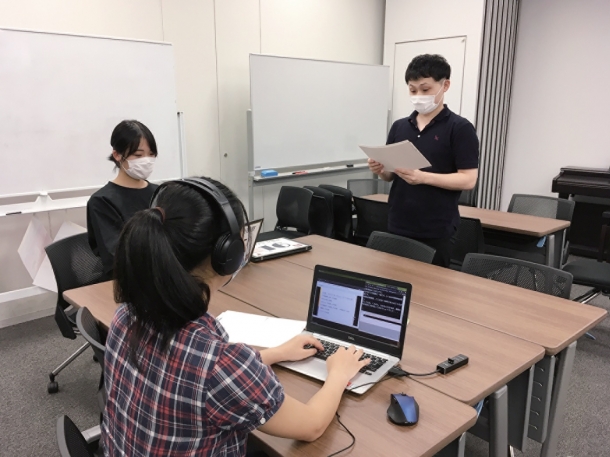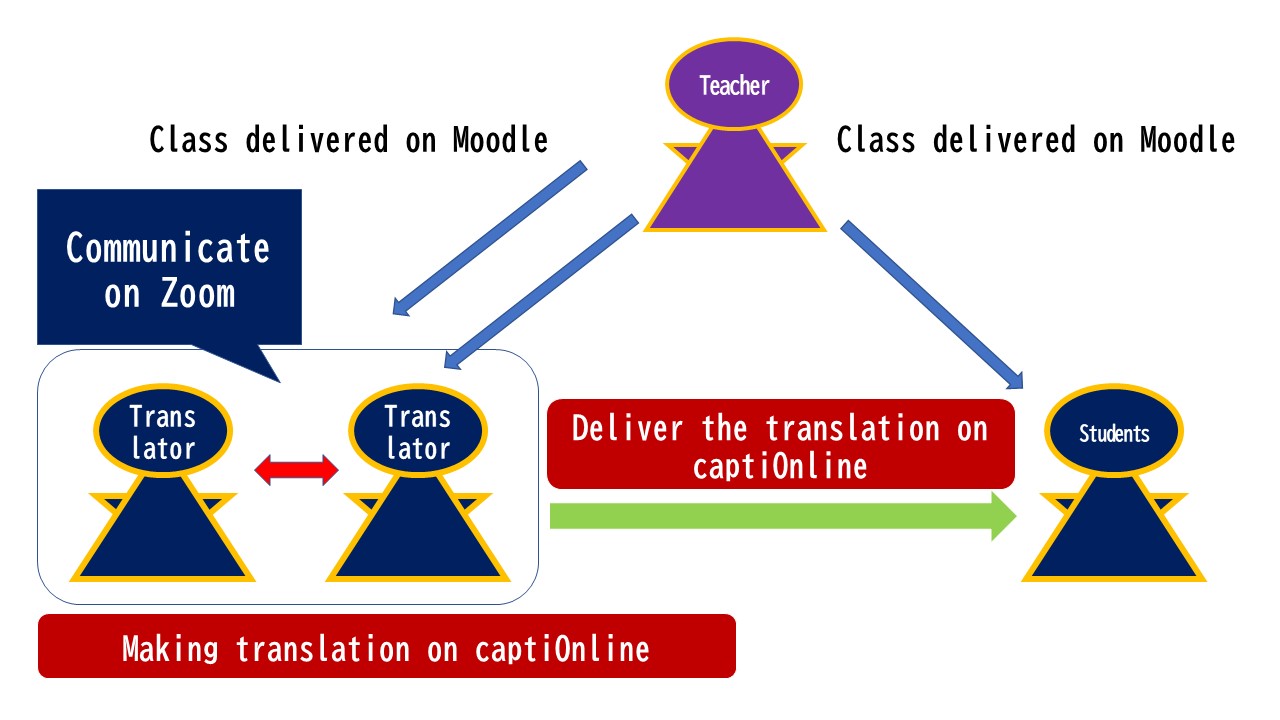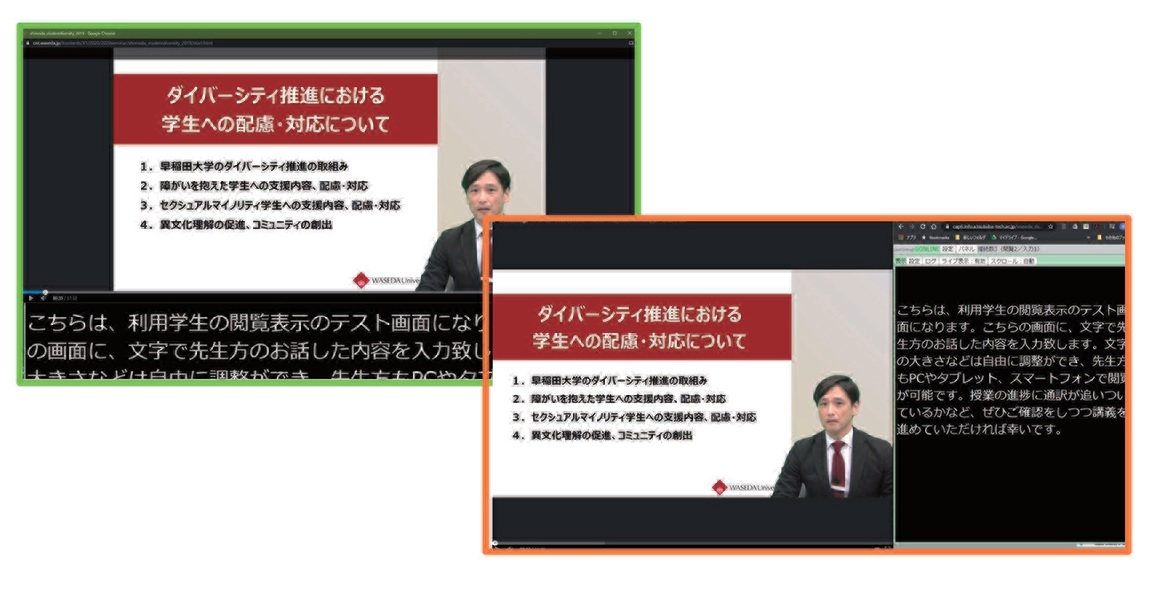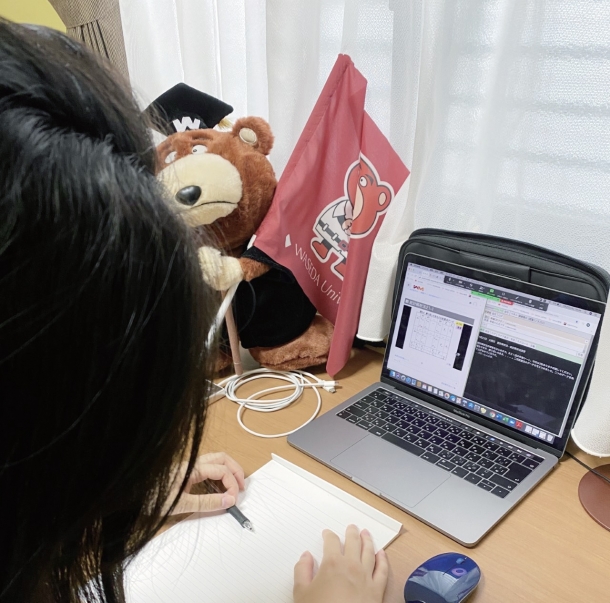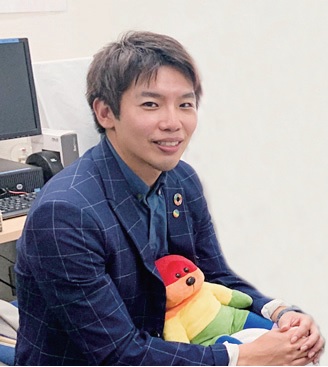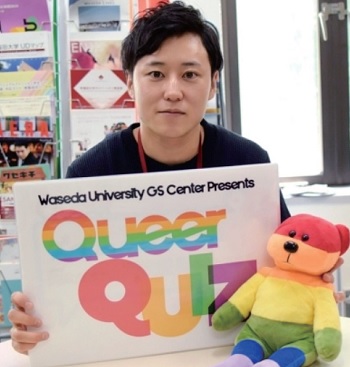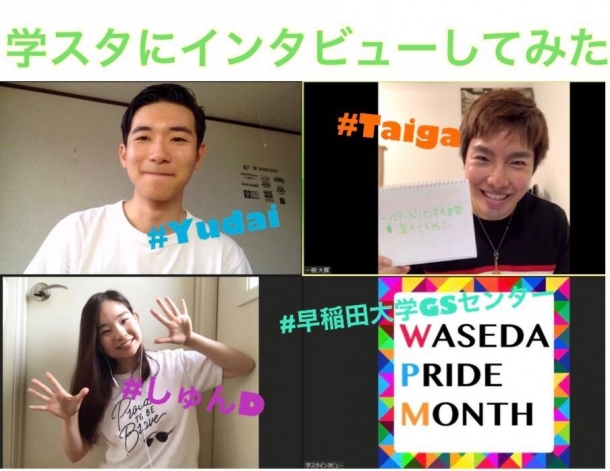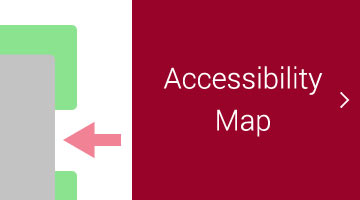The coronavirus has imposed restrictions on the learning environments of students and the educational and research activities of faculty and staff. Amid these circumstances, the Student Diversity Center, based on a strong commitment to “not allow educational and research activities to stop,” has engaged in the following support initiatives to accommodate a wide range of needs as part of the university’s mission to actualize an educational and research environment where “no one is left behind.”
Part Ⅰ. The Office for Students with Disabilities: Utilizing ICT While Ensuring Social Distancing
Part Ⅱ. The GS Center: Providing Thoughtful Support for LGBTQ+ Students
Part Ⅰ. The Office for Students with Disabilities: Utilizing ICT While Ensuring Social Distancing
For students and faculty, the initial shift towards online classes was a process of trial and error to adapt to an unfamiliar environment. This was especially true for students with hearing impairments, who face barriers in such environments, which is why the cooperation of support students has been indispensable. Tohru Mashiko, a specialist coordinator at the Office for Students with Disabilities, shared with us how students and staff are supporting the studies of students with hearing impairments.
In collaboration with related departments, the Office for Students with Disabilities provides various forms of support to help students with disabilities facing various educational challenges to learn in the same environment as other students. There are approximately 130 students with disabilities and 100 support students registered with the office.
Some of you may be thinking, “How are students with hearing impairments able to hear the content of a class?” One example of how the office addresses this issue is via the web application captiOnline*1, which was introduced to secure information for students with hearing impairments. Using this application, support students in Aomori or Kanagawa can provide speech-to-text interpretation for students with hearing impairments living in other prefectures. In the spring semester, around 60 support students and external supporters provided support for around 80 classes that had 10 hearing-impaired attendees.
- A conceptual diagram of information security using captiOnline
- An example of what a student with hearing disabilities will see when receiving support
The office also requests the instructors of these classes to provide reference materials in advance for interpreters, as well as video content they intend to use so that subtitles can be added in advance. The utilization of hand-raising functionality and a chat room for faculty and students via Zoom*2 also provide visual clues and are useful in enhancing understanding for students with hearing impairments as well as Japanese and international students. While providing support this semester, I was reminded of how little considerations and concerns for individuals can help a lot of people.
More so than in other years, due the coronavirus pandemic, this year has presented instructors an opportunity to come together and think about how we should support students. The university will continue to conduct online classes, so, as a support office, we will continue training support students (speech-to-text interpreters etc.) and enhance our support for other students with disabilities.
For the latest information about the office, please refer to the Office for Students with Disabilities website.
*1. A free PC interpretation software developed by Tsukuba University of Technology Associate Professor Daisuke Wakatsuki
*2. An online meeting service provided by Zoom Video Communications
Voice of Hearing-Impaired Student: “Adjusting Communication Methods”
I have a severe hearing impairment. Currently, I’m attending classes with the support of the office, but even with their support, it can be difficult because I can’t completely understand what those around me are saying. When I speak with other students, I infer what they’re saying, but my understanding is 40% based on the shape of their mouths and their expressions; 20% on their voices; and 40% on the context of the conversation. Therefore, it’s very helpful when, for example, speaking on Zoom, others position their camera so their mouths are visible and remove their mask. That way I can clearly see the shape of their mouth and their expressions. Considering the pandemic, it’s difficult to ask others to remove their masks, but I hope people will understand that little adjustments like this go a long way. (School of Human Sciences Second-year Student, Hazuki Kawano)
Voices of Support Students
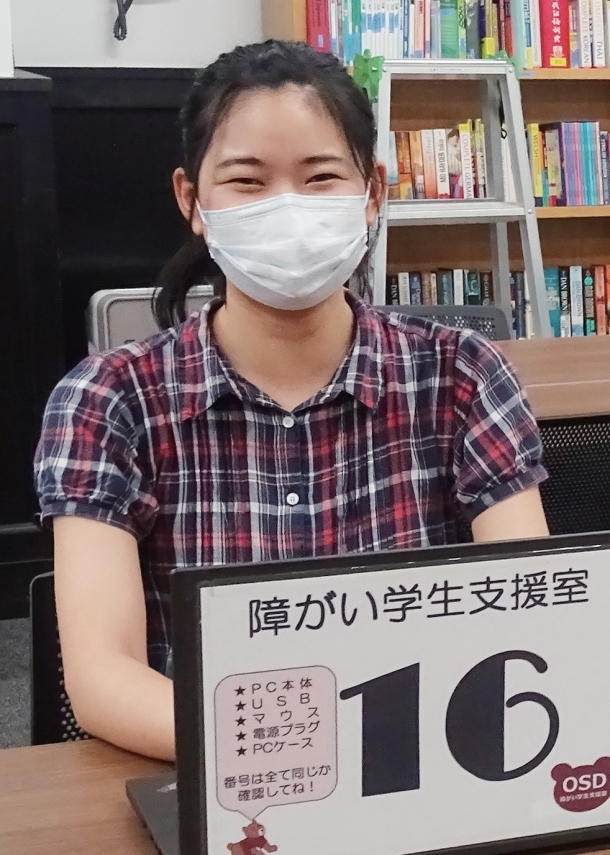 I decided to become a support staff during a guidance session as a new student. When I did track and field up through high school, I decided to dedicate all my time and stamina to track and field in high school. However, after high school, I knew I wanted to do something to help others.
I decided to become a support staff during a guidance session as a new student. When I did track and field up through high school, I decided to dedicate all my time and stamina to track and field in high school. However, after high school, I knew I wanted to do something to help others.
When I learned about the opportunities at the guidance by the office, I thought, “This is exactly what I was looking for!” and jumped at the opportunity to register as a supporter. As a supporter, I’m able to interact with many classes I’m not registered for, and have countless opportunities to learn new information and make surprising discoveries.
Even the types of support that normally require support students to sit next to the person receiving support have gone online this semester, which is unfortunate. I look forward to the day when everyone at the support office, as well as new students, can meet and talk to each other. (School of Sport Sciences Second-year Student, Akira Nishimura)
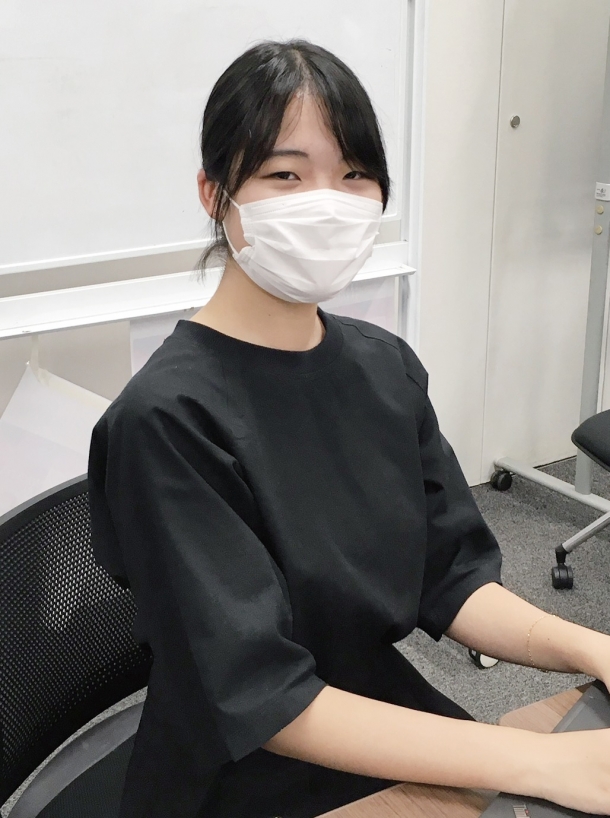
When I was having trouble registering for classes, I came across a poster about the office while on the bus to university. This was the impetus for registering as a support staff. I wasn’t completely sure what I wanted to do at the time, and I thought it would be a good chance to experience various classes, so I signed up.
The changes not only affect us support students, but also instructors and regular students. I feel that more instructors are consulting with us about how to best conduct classes for students with hearing impairments.
Although it’s sad we can’t directly talk to the hearing-impaired students, and everyone else, it has been a great opportunity to see everyone compromise and work together. (School of Human Sciences Second-year Student, Hikaru Tomimatsu)
Part Ⅱ.The GS Center: Providing Thoughtful Support for LGBTQ+ Students
Due to the coronavirus pandemic, university classes are being conducted online, which means students are spending more time indoors and at home. The GS Center (Gender and Sexuality Center) immediately recognized that this situation may pose challenges to LGBTQ+ students who are suffering from stress due to staying longer at home with family, or live on their own and can’t go to campus, and in response, has implemented online consultations and support systems. GS Center specialists Kazuki Taiga and Ayumu Watanabe shared how they are accommodating a wide range of needs and prioritizing students’ ability to live comfortably.
- Specialist coordinator Kazuki Taiga
- Specialist coordinator Ayumu Watanabe
Consultation Examples
・Troubles with Online Classes
The first consultation we received revolved around how names are displayed in online classes. We didn’t anticipate the actual names of students who don’t want to disclose their actual names to other students, the names registered with the university, would be displayed on the screens of those attending online classes. We understand how this would affect students who are usually called by their preferred name in in-person classes or can’t use their aliases for certain reasons.
The GS Center, which received these consultations, worked with related faculties or sections and made adjustments towards resolving this issue. Currently, there are classes that accommodate students by allowing them to attend with their cameras off, but there are also classes which use honorifics such as kun or san, which correspond to the gender inferred by their name or appearance displayed on the screen. We heard from some students that this made them uncomfortable, so, in response, the GS Center informed the Office for Promotion of Equality and Diversity, which alerted the instructors and reminded them to review the “Guide to Consideration and Accommodation for Sexual Minority Students.”
・Troubles Related to Staying Home
There aren’t many students who’ve come out to their families, and the call to stay at home during the coronavirus pandemic means they have to spend long periods of time with their family. They can’t go to campus and connect with their classmates, which can result in psychological stress. In order to provide a place of “connection” and “psychological security” during these times, the GS Center is planning and hosting online events. The exchange event WASEDA PRIDE MONTH, held in spring, as well as a collaborative event with Chuo University, which centered on how the coronavirus will change the way we connect in relation to diverse sexualities in all universities, and what we can expect in the future, welcomed many students from around the country and provided a place for students facing difficulties in their lives to connect and support each other.
・Troubles Specifically Affecting International Students and New Students
D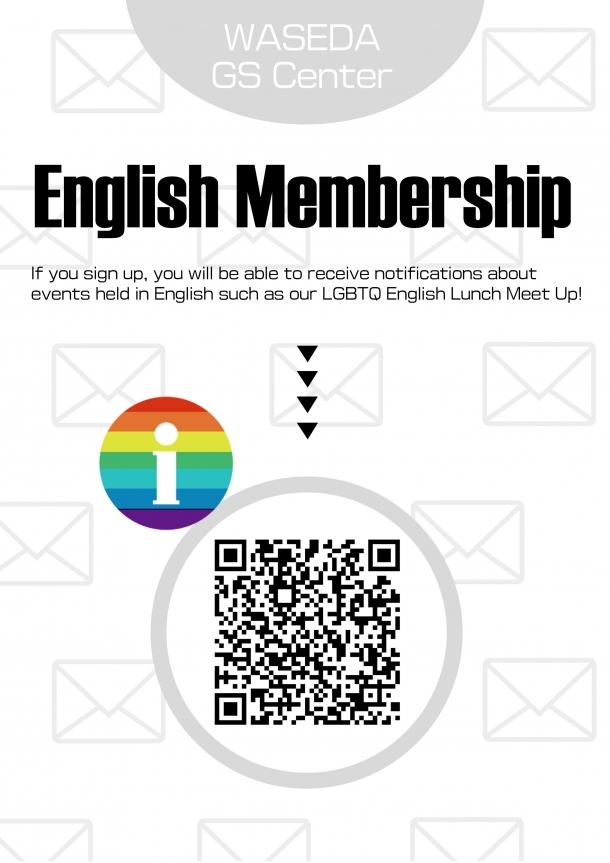 epending on their circumstances, international students can be a “double minority,” and some have expressed they’re unable to reach out for consultation due to language barriers. This is why the center created an online “English Meet-up” event where they feel welcomed. We also think new students who haven’t been able to come to campus may have concerns regarding gender and sexuality. Although some students have already watched videos of events or attended online events, we really want students not to worry by themselves, and to feel free to take advantage of these opportunities.
epending on their circumstances, international students can be a “double minority,” and some have expressed they’re unable to reach out for consultation due to language barriers. This is why the center created an online “English Meet-up” event where they feel welcomed. We also think new students who haven’t been able to come to campus may have concerns regarding gender and sexuality. Although some students have already watched videos of events or attended online events, we really want students not to worry by themselves, and to feel free to take advantage of these opportunities.
The center respects students’ personal privacy when responding to consultation requests. Through the various events that allow students to connect, we at the GS Center hope to continue to be an intimate presence for sexual minority students and allies. For the latest information regarding its activities, please refer to the GS Center’s website.
Voices of Student Staffs
As those in closest proximity to students during the pandemic, student staff communicate students’ concerns to the center and w
ork towards providing accommodations. Although the GS Center quickly implemented online consultations, I felt there was a need to communicate more information to students (especially new students), so I proposed sharing information via MyWaseda. With regard to honorifics and pronouns when calling on students, there are many instructors who use gender-neutral or preferred pronouns, or honorifics. However, there have been instances when they forget over the course of an online classes. I want instructors to understand that current circumstances place minorities in a particularly difficult situation, and want them to refrain from calling on students based on gender all together. (Graduate School of Law Master’s Program First-year Student, Y)
We’ve always been committed to supporting students with intersecting identities, including international LGBT Q+ students. Many of these students live on their own, and because there are language barriers in online communities, life can feel alienating, especially during the pandemic. These circumstances call on faculty and staff to be considerate of students and be there for them, as they may be experiencing issues that aren’t immediately apparent. (School of Political Science and Economics First-year Student, A)

